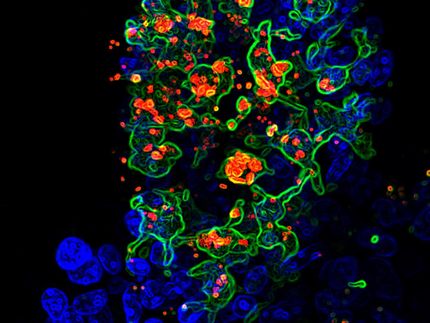First step to new therapy for chronic bowel disease
Advertisement
Scientists associated with VIB (Flanders Institute for Biotechnology) and Ghent University (UGent) have discovered that A20 protein plays an important protective role in diseases associated with chronic bowel inflammation. This makes A20 into a promising therapeutic target for the development of new anti-inflammatory drugs.
Inflammation is a normal protective reaction against tissue damage and infection. This immune response is very specific and only possible after a whole cascade of signals. Sometimes, however, something goes awry in the chain of reactions, leading to an out-of-control inflammation process and possibly undesirable responses against endogenous substances. Crohn's disease and ulcerative colitis are both chronic inflammatory disorders of the gastrointestinal tract. Hence, reining in the runaway immune system would seem to be the obvious treatment for these diseases. But this requires a thorough knowledge of the whole process.
The NF-kappa-B protein plays a critical role in the inflammatory response and is activated by e.g. TNF, which is produced by the white blood cells and acts as a kind of messenger molecule between multiple cell types. This leads in the cell to the production of e.g. A20, a protein that shuts down NF-κB activation and is able to prevent cell death.
To identify the physiological role of A20 protein, Lars Vereecke and his colleagues, under the leadership of Geert van Loo and Rudi Beyaert, studied mice whose intestinal epithelial cells (cells that line the intestinal wall) were incapable of producing A20 protein. Their experiments showed that the intestinal epithelial cells of these mice were very sensitive to TNF-induced apoptosis, which in turn made them highly susceptible to developing chronic bowel inflammation. When intestinal epithelium breaks down, bacteria have a chance to penetrate the intestinal tissue, which will trigger a systemic inflammatory response.
In a normal or healthy environment, the role of A20 protein is quite limited. It mainly plays a protective role in the presence of intestinal damage or inflammation. This study confirms the results of a genome-wide analysis, involving a large number of patients, which showed that defects in A20 can play a role in the development of Crohn's disease. This makes A20 protein a promising target for the development of new drugs to treat chronic inflammatory bowel disease.
Original publication: Vereecke et al., “Enterocyte-specific A20 deficiency sensitizes to tumor necrosis factor-induced toxicity and experimental colitis”; J Exp Med 2010.























































